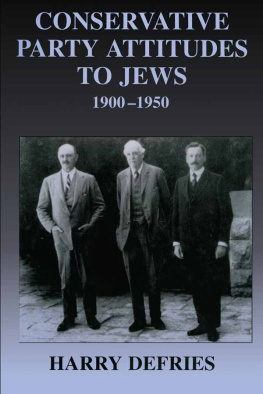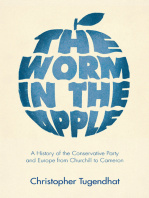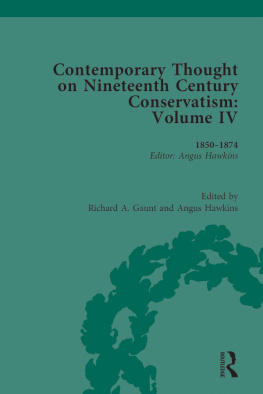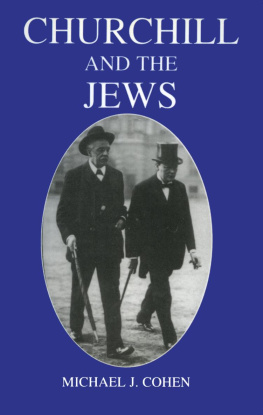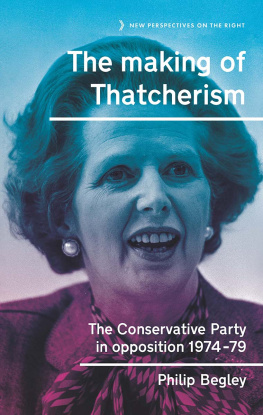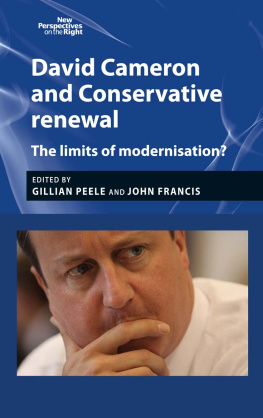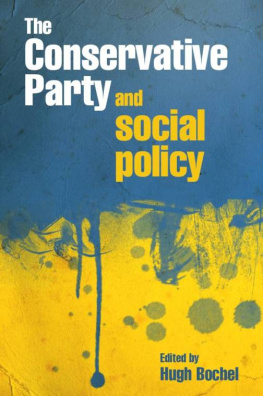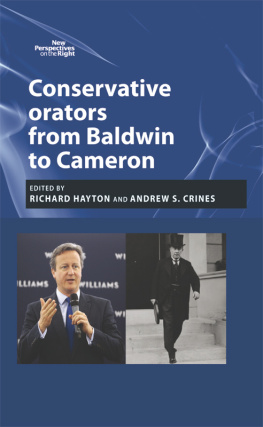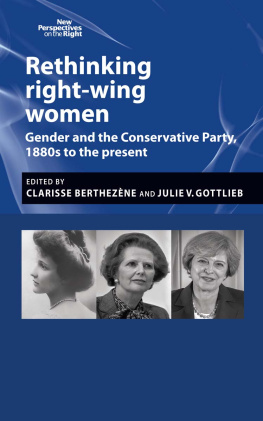CONSERVATIVE PARTY ATTITUDES TO JEWS 19001950
CASS SERIES: BRITISH POLITICS AND SOCIETY
ISSN: 14671441
Series Editor: Peter Catterall
Social change impacts not just upon voting behaviour and party identity but also the formulation of policy. But how do social changes and political developments interact? Which shapes which? Reflecting a belief that social and political structures cannot be understood either in isolation from each other or from the historical processes which form them, this series will examine the forces that have shaped British society. Crossdisciplinary approaches will be encouraged. In the process, the series will aim to make a contribution to existing fields, such as politics, sociology and media studies, as well as opening out new and hitherto neglected fields.
Peter Catterall (ed.), The Making of Channel 4
Brock Millman, Managing Domestic Dissent in First World War Britain
Peter Catterall, Wolfram Kaiser and Ulrike Walton-Jordan (eds), Reforming the Constitution: Debates in Twentieth-Century Britain
Brock Millman, Pessimism and British War Policy, 19161918
Adrian Smith and Dilwyn Porter (eds), Amateurs and Professionals in Post-war British Sport
Archie Hunter, A Life of Sir John Eldon Gorst: Disraeli's Awkward Disciple
Harry Defries, Conservative Party Attitudes to Jews, 19001950
CONSERVATIVE PARTY ATTITUDES TO JEWS
19001950
HARRY DEFRIES
First published 2001 by
FRANK CASS PUBLISHERS
This edition published 2013 by Routledge
2 Park Square, Milton Park, Abingdon, Oxon 0X14 4RN
711 Third Avenue, New York, NY 10017
Routledge is an imprint of the Taylor & Francis Group, an informa business
Copyright 2001 Penny Gostyn (Defries)
British Library Cataloguing in Publication Data
Defries, Harry
Conservative Party attitudes to Jews, 19001950.
(Cass series. British politics and society)
1. Conservative Party History 2 Jews Great Britain
Public opinion 3. Public opinion Great Britain 4. Great
Britain Politics and government 20th century
I. Title
305.892404109041
ISBN 0-7146-5221-0 (cloth)
ISSN 14671441
Library of Congress Cataloging-in-Publication Data
Defries, Harry 19512000
Conservative Party attitudes to Jews, 19001950/Harry Defries
p. cm. (Cass series British politics and society, ISSN
14671441)
Includes bibliographical references and index.
ISBN 0-7146-5221-0 (cloth)
1. Jews Public opinion. 2. Public opinion Great Britain. 3.
Conservative Party (Great Britain) 4. Great Britain Politics and
government 20th century. 5. Jews Great Britain Public
opinion. 6. Great Britain Ethnic relations. I. Title. II. Series.
DS102.95 .D45 2001
323.1192404109041-dc21
2001028856
All rights reserved. No part of this publication may be reproduced, stored in or introduced into a retrieval system or transmitted in any form or by any means, electronic, mechanical, photocopying, recording or otherwise, without the prior written permission of the publisher of this book.
Typeset in 11/12 Palatino by FiSH Books, London WC1
Contents
I n the first half of the twentieth century, a period in which, for most of the time, they were both electorally and politically dominant, the attitudes of British Conservatives towards Jews were tested in a number of ways. Particularly in constituencies with large amounts of Jewish settlement, there was the question of whether, and what, controls should be placed on the largely Jewish immigration from eastern Europe. Anxieties on this score were certainly not allayed after the Russian Revolutions of 1917, when many on the right were inclined to associate Bolshevism with the Jews. As Harry Defries shows here, both these domestic and external concerns played their parts in that other major event of 1917, the declaration by a Conservative Foreign Secretary, A. J. Balfour, in favour of a Jewish national home. The subsequent establishment of the Palestine Mandate was, however, to pose successive British governments with the fraught task of deciding how to interpret that declaration in practice. Not least was the vexed question of how to tackle the flight of Jews from Nazi Germany and whether, and to what extent, they should be allowed admission into both Britain and Palestine. Meanwhile, underlying all these issues was one that any party that, like the Conservatives, saw themselves as the party of the nation, and of social stability, might have been expected to address, that of assimilation.
These different issues, being posed in different ways at different points in time, militate against a simple typology. Conservative attitudes cannot be portrayed, at any point during this period, as monolithically anti- or philo-Semitic. Nor, indeed, do either these labels or others have much utility without some kind of context. Labels could be used as shields vide the way in which those advocating immigration restrictions frequently protested that they were not anti-Semites. And they can mislead. Balfour, for instance, may have described himself during the post-1918 peace conferences as a Zionist, but this did not mean that he shared a common vision with Chaim Weizmann. Nor was it the same as being a philo-Semite.
Insofar as there are common threads in Conservative attitudes that can be discerned, one is the association of Jews with external threats: with Germany up to and including the First World War and with Russia thereafter. The other is the question of what role, if any, Jews might play within the British Empire. Defries shows the Edwardian linkages between Chamberlainite tariff reformers and anti-alienism. Some of Chamberlain's disciples were, however, during the First World War, to see a Jewish homeland as a way of bolstering the Empire in the Middle East, even if, by the late 1930s, in the light of the Arab Revolt, this was coming to be seen as increasingly unlikely.
The contradictions in Conservative attitudes towards Jews are reflected, for instance, in the views of Mark Sykes on these related themes; Jews were good when constructively engaged in the building up of Palestine, but bad when associated in some way with Bolshevism. Others could even portray Jews as good when contributing to the building-up of the British economy, while at the same time worrying about the social and cultural threat they apparently posed. At bottom, the characterisation rested upon a construction of Jewishness which was widespread, if often only half-formed and even more frequently unstated, amongst Conservatives, as well as being manifested in very different ways across the party. For instance, Jews as modern, footloose capitalists might be useful, but could also be seen as outside, and predatory upon, a settled society coping with and scarred by industrial change. Accordingly, although Britishness may be a cultural rather than racial construction, it could prove difficult fully to accommodate Conservative concepts of Jewishness within it. Indeed, for some, the way they conceived of Jewishness was totally opposed to their conception of Britishness. However, as Defries points out, the importance of concepts like fair play in the construction of Britishness nevertheless militated, for all but a handful of Conservatives, against overt anti-Semitism. Indeed, he argues that this conceptual framework helps instead to explain the apparent contradiction of the relatively accommodating attitude towards Jewish immigration from Germany adopted by the Conservative leadership in the 1930s, in contrast to the restrictionist agitation of the Edwardian years.

